I arrive in Kyoto during the Bon Festival as tiny boats with candles are launched along the Kamo River carrying wishes for dead loved ones out into the universe. A few months later, Ann, one of my fellow English teachers, will die from late-stage anorexia while I sit all night by her bed witnessing her agony. More days pass as I struggle with fear and depression. More months will accrue before I meet the Zen monks who live on the outskirts of the city. It is just a short walk from my home to Ryoanji temple. I take the leap and accept an invitation to join the monks in meditation.
Awake at 4:30 a.m., I dress quickly and climb the moss-covered hills to Ryoanji, emerging from the pine woods at the entrance to the monastery. Here large stones stand like silent sentinels in the famous rock garden of the temple. I discover the garden is designed to represent a microcosm of the natural world.
“Are you having difficulty with the practice?” the roshi asks me one day.
How does he know that I struggle? After many years of meditating, I imagine he has achieved the ability to see into one’s soul, a spiritual x-ray vision of sorts.
“If it is meaningful, I think it is best that you use the name of Jesus,” the roshi says bowing in my direction.
He is familiar with the Jesus Prayer from Orthodox Russian Christianity: Jesus Christ have mercy on me a sinner. I am not attracted to this prayer. Somehow the word sinner provokes heavily laden images from my scrupulous Catholic childhood. Instead, from that day on I merely repeat the name of Jesus, sometimes adding the name of Buddha, for good measure. This practice continues to bring peace to my life. Later, I am invited to accompany the monks when they take their rice bowls into the village to beg for alms. On other days, I join them as they climb into the folds of Mt. Kurama.
Some months after encountering Buddha and Jesus in this way, I have a dream in which Ann comes to me. She is radiant and whole. We are standing at the rail of an ocean liner watching the sunset over a velvet-blue expanse of ocean. Her strawberry blonde hair glows in the last rays of the light as she turns a radiant smiling face in my direction.
“I’m okay,” she tells me. “I am safe and happy here.”
It is the time of the Bon Festival once again and time for me to return to Michigan.
“When you reach home,” the roshi addresses me in a soft penetrating voice, “don’t try to be a Buddhist.” He smiles and continues. “Instead, be a good Christian.” It takes a few minutes before I realize he is encouraging me to be myself, to be an American woman with roots in Christianity. The roshi reads my soul.
I determine not to forget the message of my Zen teacher. One day in the future, I will meet Matthew Fox who will introduce me to the ancient Christian mystics including Meister Eckhart who tells us: God is not found in the soul by adding anything but by a process of subtraction. This strikes me as sounding suspiciously like a Zen koan, a riddle it might take a searcher years to unwrap. I smile. I have come full circle.
Today I sit with my meditation sangha. I have to admit that with the emergence of the radical Christian Right, I no longer recognize the compassionate Jesus of my youth. Yet on the most difficult days, I reach out for him hoping to find the conviction I need to stand for justice. When Thich Nhat Hanh steps in through readings on Inter-Being, I understand the Buddha is not only a source of compassion but, like Jesus, a radical force for right action.
Delighted to discover Tara, a feminine embodiment of the Buddha, I am reminded of Mary in my Christian tradition. Her Magnificat is a manifesto in praise of both compassion and justice. Tara and Mary open the door for me to return to Jesus. I see him in the faces of migrants crossing the desert and the sea. I see him in the black man gunned down on our streets. I see him in the species leaving our planet never to return.
I finally realize that Jesus is more than just a historical figure or even the son of a patriarchal God. He is the Cosmic Christ and, as such, he and the Cosmic Buddha are the same. At this perilous time in history, they come to tell us it is not too late. “Take courage. Find your voice,” they whisper, “and then take refuge in us. We will travel with you, not to another world, but into the depths of this one beautiful, shining, blue planet.”
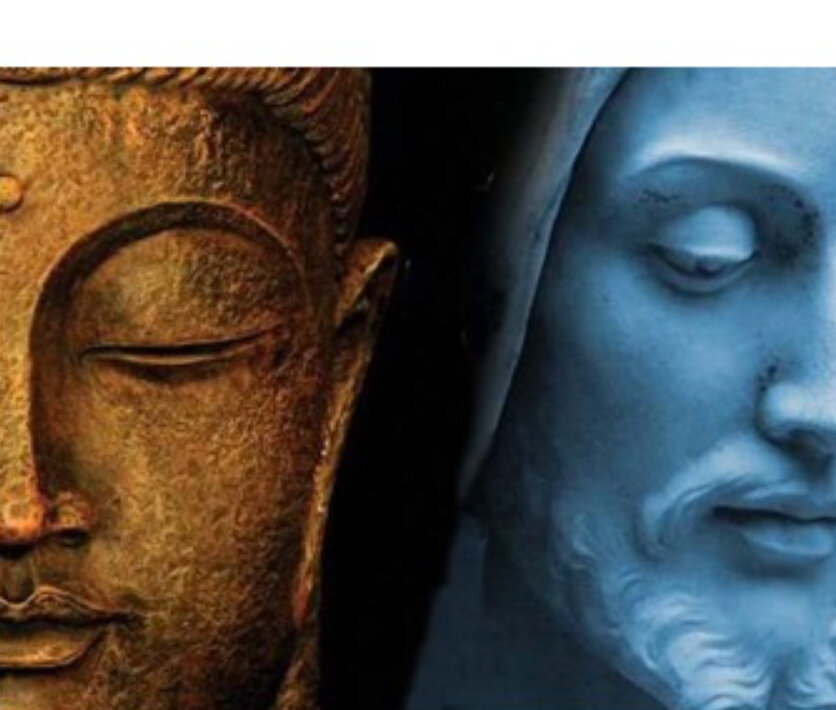

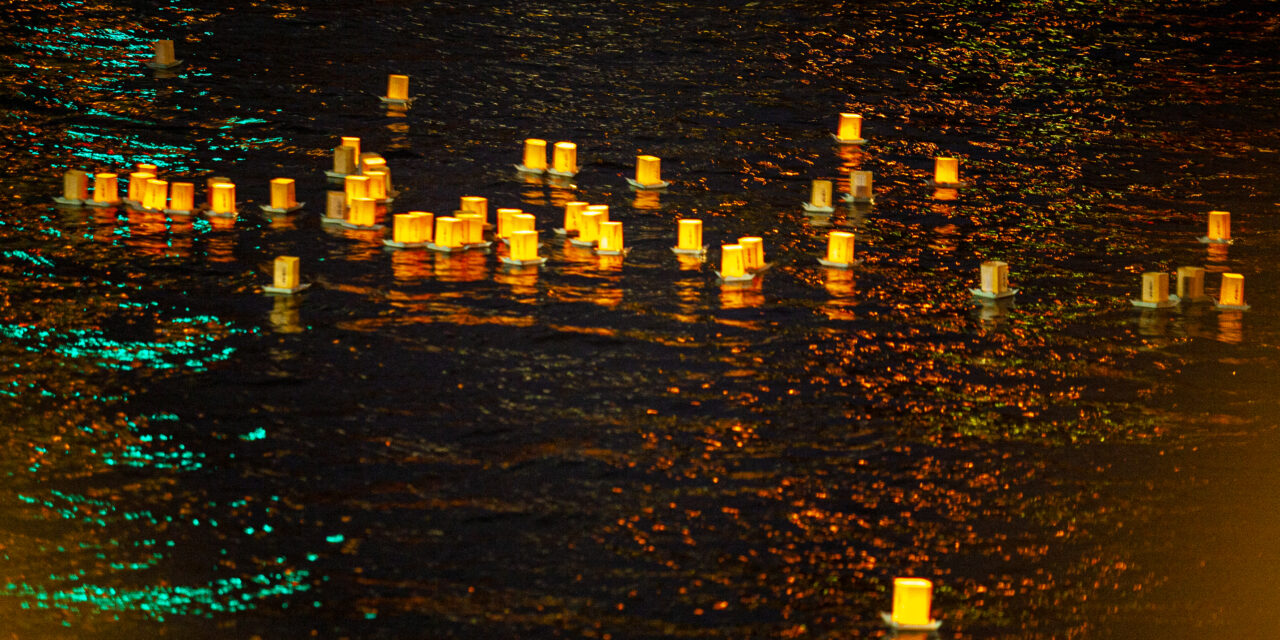
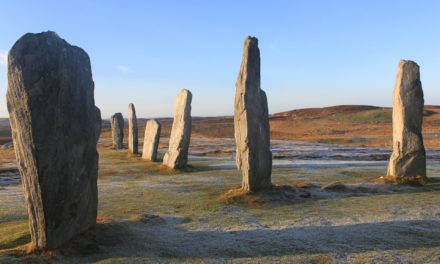
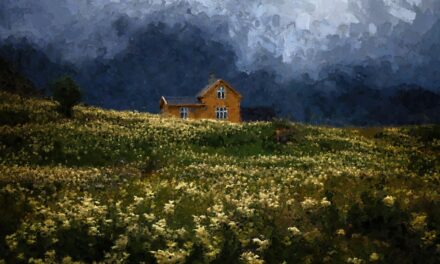
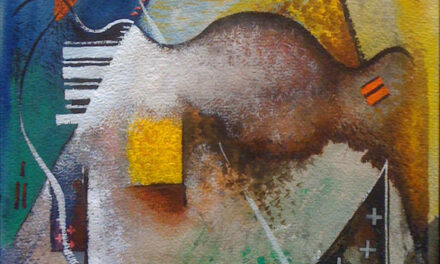
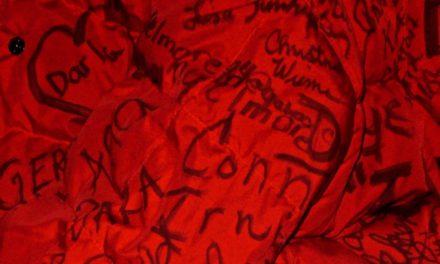

Beautiful message. Exactly my experience with my Teacher when he told me, ‘No need for you to become a Hindu. Take this teaching of meditation back into your own tradition and let it nourish them until they discover it was always there, in their root.’ Thank you for sharing!
This feels like the rapture the Pentecostals feel when they have fallen on the altar and gyrated only to get up and go back to driving a forklift or watching reality television. Om Nama Shiva, Holy, Holy, Holy God. Drink from the traveling gourd. Know freedom. Feel the earth beneath our feet. Get on board, little children. There’s room for many a more.
Oh Marijo,
This is a powerful witness to a profound experience!
Sounds like the truth of it continues to manifest as you continue on your journey